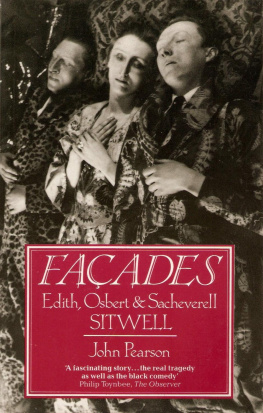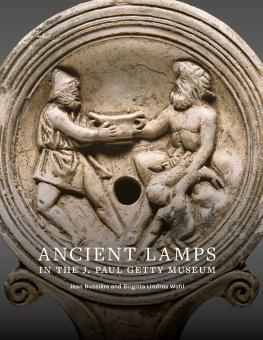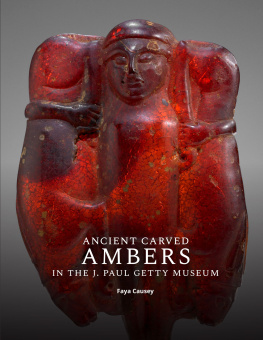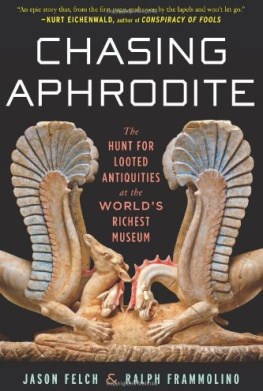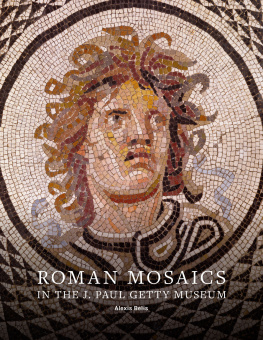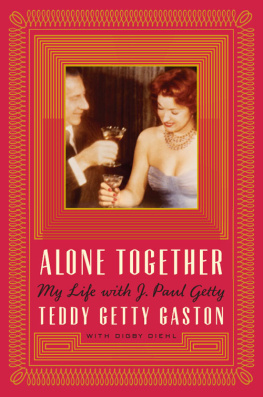John Pearson
Painfully Rich
J. Paul Getty
And His Heirs

This electronic edition published in 2011 by Bloomsbury Reader
Bloomsbury Reader is a division of Bloomsbury Publishing Plc, 50 Bedford Square, London WC1B 3DP
Copyright John Pearson 1995
Cover image Mark Kauffman / Getty Images
First published by Macmillan
The moral right of author has been asserted
All rights reserved
You may not copy, distribute, transmit, reproduce or otherwise make available this publication (or any part of it) in any form, or by any means (including without limitation electronic, digital, optical, mechanical, photocopying, printing, recording or otherwise), without the prior written permission of the publisher. Any person who does any unauthorised act in relation to this publication may be liable to criminal prosecution and civil claims for damages
ISBN: 9781448208050
eISBN: 9781448207817
Visit www.bloomsburyreader.com to find out more about our authors and their books
You will find extracts, author interviews, author events and you can sign up for newsletters to be the first to hear about our latest releases and special offers
For Peter and Pamela Evans the best of friends
Money is the last thing that shall never be subdued. While there is flesh there is money or the want of money; but money is always on the brain, so long as there is a brain in reasonable order.
Samuel Buder the Notebooks
Contents
Jean Paul Getty was eighty-three, and had had three face-lifts, the first at sixty, but the last had failed, making him look inordinately old. He was reputedly the richest American alive, but recently all he had wanted was to hear Penelope read him G. A. Hentys Victorian boys adventure stories.
Penelope Kitson he called her Pen was a tall, good-looking woman, who had been his closest friend for more than twenty years and she read well in the no-nonsense voice of the upper-class Englishwoman she was. He had a large collection of the works of G. A. Henty. Possibly they made him think of a daring boyhood he had never had and a life of physical adventure he wished that he had led.
Getty believed in reincarnation but dreaded dying. Convinced that he had been the Roman Emperor Hadrian in an earlier life, and having been so fortunate in this, his present one, he feared that third time round he might not be so lucky.
Getty reincarnated as a coolie, as the child of a Calcutta slum? Could God have such a twisted sense of humour? All too possible, and the prospect daunted him.
His youngest surviving son, accompanied by his wife, had flown to London from California and had been with him at the house for several days trying to persuade him to go home with them by chartered Boeing. Home was Gettys ranch-house overlooking the Pacific Ocean at Malibu but the old man was terrified of flying and had not seen Malibu nor his native USA for over twenty years. What sort of home was that?
You know what, Pen? They want to take me back because they think Im dying.
He stated the fact in the flat midwestern voice which seemed to count the cost of every syllable then closed the subject as a book-keeper closes an account. J. Paul Getty, billionaire, was staying put.
He was also refusing now to go to bed.
People die in bed, he said making it clear that he had no intention of doing so if he could help it. Recently he had taken to living in his armchair with a shawl around his shoulders.
Death is harder for the rich to face than it is for humbler mortals, the rich having so much more to lose and leave behind them this great draughty house for instance. Built between 1521 and 1530 by Sir Richard Weston, a courtier of Henry VIII, Sutton Place had been one of Jean Paul Gettys many bargains when he had prised it from a hard-pressed Scottish duke (Sutherland) in 1959. It was the nearest to a real home that he had ever had, and for all its discomfort and inconvenience he truly loved this red-brick Tudor pile with its twenty-seven bedrooms, its timbered hall complete with minstrels gallery, its home farm, and its resident ghost (of Anne Boleyn, who else?), all set in bijou Surrey countryside twenty miles by motorway from London.
Then there was Gettys male lion, Nero, growling in his cage outside the house. The old man loved Nero as much as he permitted himself to love almost anyone, and since he fed him personally, Nero would miss him.
After Nero came his women.
Jean Paul Getty is priapic, Lord Beaverbrook once warned his granddaughter, Lady Jean Campbell.
What does that mean, Grandpapa? she asked him.
Ever-ready, he replied.
He always had been. Ever since adolescence in Los Angeles, women had been the one luxury the old miser had never denied himself. How he had enjoyed them in his time! Young and old, fat and fashionably thin, drum-majorettes and duchesses, streetwalkers, stars and socialites. Until quite recently he had been taking vitamins in massive doses, together with the so-called sex drug, H3, to maintain his potency. But now all that was over, and it was no longer sex but the rumour of his imminent departure which brought his mistresses to Sutton Place.
He would not be lavish with them any more than he was lavish with himself. He was courteous with women, but rarely became emotionally involved for long.
Had all his money brought him happiness? There is a certain consolation in the thought of the very rich deriving little pleasure from their wealth, and much of Gettys undoubted popularity originated in that look of crucified affliction with which he had schooled himself to face the world.
As Gettys one-time chief executive, the celebrated Claus von Blow, put it, he always looked as if he were attending his own funeral. But clever Claus was swift to add that behind that rainy countenance his boss was secretly enjoying life, and that this contrast formed what he saw as the essential comedy of Gettys whole existence. Von Blow may have had a somewhat special sense of humour, but according to him, Getty always saw the funny side of things.
Perhaps he did, and we will never know what risible delights the old nocturnal joker found in the stillness of the Surrey night with a balance sheet.
For his fortune had achieved surreal proportions, and since most of it was carefully invested and busily creating yet more money, not even Jean Paul Getty ever knew precisely how rich he was. Suffice it to say that his fortune was almost as great as the annual budget at that time of Northern Ireland, where his forebears originated, more than any human being could exhaust in a lifetime of the most extravagant desires. He could have given every man, woman and child in the United States a tendollar bill and still been rich.
Few things, of course, would have been less likely, for in contrast with John D. Rockefeller, who habitually dispensed a freshly minted dime to any child he met, Jean Paul was disinclined to acts of random generosity. Indeed he was disinclined to generosity, full stop, but his celebrated stinginess was not exactly what it seemed.
Thats why hes rich, people used to say. But they were wrong. Avarice alone could never have accounted for a fraction of a fortune such as his, and Gettys meanness was less the cause of his exaggerated wealth than a symptom of something more intriguing.
The truth was that Jean Paul Getty was a man of passion, which he had channelled single-mindedly into the creation of his massive fortune much as a great composer pours his soul into a symphony. His real love was not for women, who were incidental, but for money, which was not, and he had proved himself a faithful and romantic partner during his lifelong love affair with wealth, jealously acquiring it, and making it increase, in massive quantities, across a period of more than sixty years.
Next page




